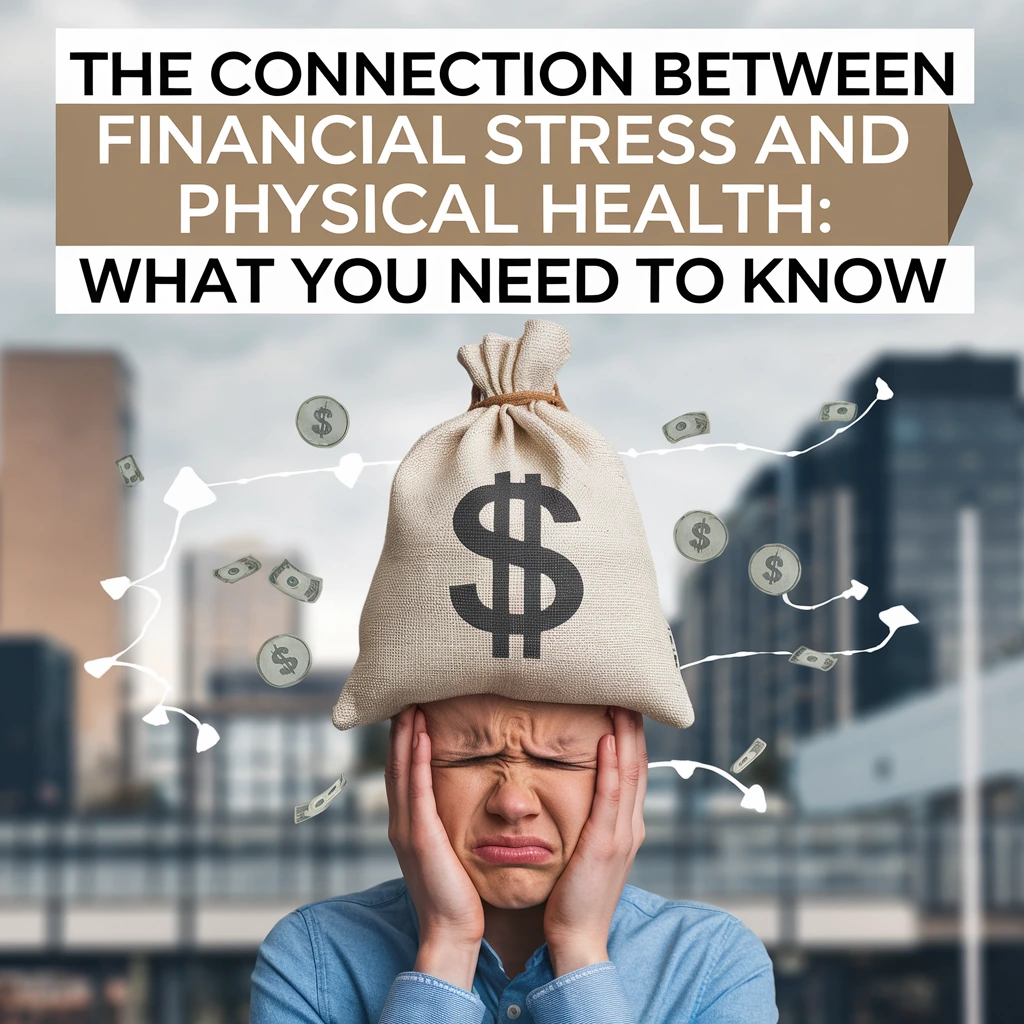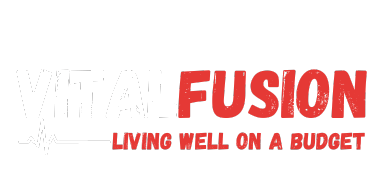The Psychological and Physical Impact of Financial Stress on Overall Wellness
In today’s fast-paced world, financial challenges can silently erode both mental and physical well-being, creating a complex web of interconnected health consequences that many people overlook. The invisible burden of monetary pressures goes far beyond simple number-crunching, deeply affecting an individual’s overall quality of life.

Table of Contents
Understanding the Stress-Health Connection
Financial stress triggers a profound physiological response in the human body. When individuals constantly worry about money, their nervous system enters a perpetual state of heightened alert, releasing stress hormones like cortisol and adrenaline. These hormones, while designed to protect us in short-term scenarios, become destructive when consistently elevated.
Physiological Manifestations of Financial Anxiety
- Increased heart rate and blood pressure
- Compromised immune system functioning
- Disrupted sleep patterns
- Heightened risk of cardiovascular complications
Mental Health Implications
The psychological toll of financial strain can be equally devastating. Persistent money-related anxieties often lead to:
Chronic stress creates a vicious cycle where mental exhaustion further impairs an individual’s ability to make sound financial decisions. This mental fog can prevent people from developing effective strategies to improve their economic situation, effectively trapping them in a perpetual state of financial uncertainty.
Potential Psychological Consequences
- Depression
- Generalized anxiety disorder
- Decreased cognitive functioning
- Reduced emotional resilience

Physical Health Breakdown
The body responds to prolonged financial stress through various physical symptoms. Chronic stress can trigger inflammatory responses that contribute to numerous health complications, including:
| Health System | Potential Impact |
|---|---|
| Cardiovascular System | Increased risk of heart disease and stroke |
| Digestive System | Higher likelihood of ulcers and digestive disorders |
| Immune System | Reduced ability to fight infections |
Holistic Wellness Strategies
Breaking the cycle of financial stress requires a multifaceted approach. Individuals can implement several strategies to mitigate these health risks:
- Seek professional financial counseling
- Practice mindfulness and stress-reduction techniques
- Develop comprehensive budgeting skills
- Prioritize regular medical check-ups
Resources for Support
Numerous organizations provide guidance and support for individuals experiencing financial stress. Consider exploring resources like:
American Psychological Association – Offers comprehensive research on stress management
NerdWallet Financial Resources – Provides practical financial advice
Understanding the profound connection between financial stress and personal health is the first step toward creating meaningful change. By recognizing these intricate relationships, individuals can develop proactive strategies to protect both their economic and physical well-being.
Identifying Physiological Symptoms Triggered by Money-Related Anxiety
When financial pressures mount, your body often becomes a silent messenger of underlying stress. Money-related anxiety can manifest through various physiological symptoms that many people might not immediately connect to their financial struggles.
The Stress Response and Physical Manifestations
Chronic financial worry triggers your body’s stress response, releasing hormones like cortisol and adrenaline. These hormonal cascades can lead to multiple physical reactions:
- Persistent headaches
- Muscle tension and body aches
- Disrupted sleep patterns
- Digestive system irregularities
- Weakened immune response
Cardiovascular Impacts of Financial Strain
Research from the American Heart Association suggests that prolonged financial stress significantly increases heart disease risk. Elevated blood pressure, accelerated heart rates, and increased inflammation are common physiological reactions directly linked to monetary anxiety.
Neurological Signals of Money-Induced Stress
Your brain processes financial uncertainty similarly to physical threats. This triggers a complex neurochemical response that can result in:
• Reduced cognitive function • Memory impairment • Decreased concentration levels • Heightened emotional reactivity
| Stress Indicator | Potential Physical Response |
|---|---|
| Financial Uncertainty | Increased Cortisol Levels |
| Chronic Money Anxiety | Compromised Immune System |
Psychological-Physical Interconnection
Mental health professionals from the American Psychological Association emphasize that financial stress doesn’t just affect mental well-being—it creates a comprehensive physiological disruption.
Digestive systems often become primary indicators of financial strain. Individuals experiencing monetary pressures frequently report:
- Irritable bowel syndrome
- Acid reflux
- Appetite changes
- Unexplained stomach pain
Hormonal Disruptions and Metabolic Changes
Continuous financial stress can dramatically alter metabolic processes. Chronic anxiety leads to:
• Increased insulin resistance • Potential weight fluctuations • Disrupted hormonal balance • Accelerated cellular aging
Seeking professional guidance from financial counselors and healthcare providers can help mitigate these physiological responses. The National Institute of Mental Health recommends holistic approaches combining financial planning and stress management techniques.
Implementing stress-reduction strategies like meditation, regular exercise, and structured financial planning can significantly reduce these physiological manifestations. Understanding the intricate connection between financial stress and bodily responses empowers individuals to take proactive steps toward comprehensive well-being.
Recognizing these signals early allows for targeted interventions, preventing long-term health complications triggered by persistent monetary anxiety.
Holistic Strategies for Managing Financial Stress and Promoting Health
In today’s fast-paced world, financial challenges can significantly impact both mental and physical well-being. Understanding the intricate relationship between financial stress and health is crucial for developing comprehensive wellness strategies.
The Physiological Impact of Financial Strain
Financial stress triggers a complex physiological response in the body. When individuals experience ongoing monetary pressures, their bodies release heightened levels of cortisol, the primary stress hormone. This continuous stress activation can lead to:
- Increased blood pressure
- Weakened immune system
- Disrupted sleep patterns
- Potential cardiovascular complications
Psychological Connections to Financial Anxiety
The mental health implications of financial stress are profound. Chronic financial worry can manifest as:
- Persistent anxiety
- Depression
- Reduced cognitive function
- Decreased emotional resilience
Stress Reduction Techniques
Implementing strategic approaches can help mitigate the negative health consequences of financial stress. Consider these holistic techniques:
- Mindfulness Meditation: Practice daily meditation to reduce stress hormones
- Regular Exercise: Engage in physical activity to boost mental and physical resilience
- Professional Counseling: Seek guidance from financial and mental health experts
Financial Planning for Wellness
Developing a comprehensive financial strategy can significantly reduce stress levels. Key components include:
| Strategy | Benefit |
|---|---|
| Emergency Fund Development | Reduces anxiety about unexpected expenses |
| Debt Consolidation | Simplifies financial management |
| Budget Tracking | Provides clarity and control |
Nutrition and Financial Health
Interestingly, financial stress can directly impact nutritional choices. Many individuals under financial strain resort to cheaper, less nutritious food options, creating a cycle of potential health deterioration.
Practical recommendations include:
- Meal planning to reduce food expenses
- Buying in bulk
- Choosing nutrient-dense, affordable foods
Technology-Driven Financial Management
Leverage technology to gain better financial control. Utilize apps and online resources that provide:
- Budget tracking
- Investment guidance
- Expense analysis
Recommended Resources:
NerdWallet – Comprehensive financial guidance
Mint – Budget tracking and financial planning
American Psychological Association – Mental health resources
How To Build Credit And Improve Your Credit Score
Why You Need A Financial Advisor And How To Choose One
By understanding and proactively addressing the connection between financial stress and physical health, individuals can develop more resilient, comprehensive wellness strategies that support both mental and financial well-being.

The Biochemical Mechanisms Linking Economic Pressure and Physical Health
In the intricate landscape of human physiology, economic stress triggers a complex cascade of biochemical responses that profoundly impact physical well-being. Our bodies react to financial pressure through sophisticated neurological and hormonal mechanisms that can fundamentally alter health dynamics.
The primary mechanism connecting economic strain and physical health involves cortisol, often referred to as the “stress hormone”. When individuals experience sustained financial challenges, cortisol levels remain chronically elevated, creating a detrimental physiological environment. This prolonged hormonal disruption can lead to multiple systemic complications, including:
- Compromised immune system functionality
- Increased inflammation markers
- Metabolic dysregulation
- Disrupted cardiovascular responses
Neurochemical Stress Pathways
The hypothalamic-pituitary-adrenal (HPA) axis plays a critical role in translating economic pressure into physiological changes. When financial stressors persist, this neurological pathway becomes hyperactive, releasing excessive amounts of stress-related neurotransmitters. These chemical signals trigger a comprehensive metabolic response that can compromise organ systems.
Cellular Inflammatory Response
Chronic economic stress initiates a persistent inflammatory state at the cellular level. Research from the National Institute of Mental Health demonstrates that prolonged financial anxiety increases pro-inflammatory cytokine production, which is directly linked to numerous chronic diseases.
| Stress Marker | Potential Health Impact |
|---|---|
| Elevated Cortisol | Increased cardiovascular risk |
| Inflammatory Cytokines | Higher autoimmune disorder probability |
Metabolic Disruptions
Economic pressure fundamentally alters metabolic processes. Chronic stress can significantly impact insulin sensitivity, potentially increasing diabetes risk. The Endocrine Society suggests that persistent financial strain creates a metabolic environment conducive to weight gain and metabolic syndrome.
Neurological Adaptation Mechanisms
The brain’s neuroplasticity enables it to adapt to sustained economic stress, but not without consequences. Continuous financial pressure can reshape neural pathways, potentially leading to:
- Reduced cognitive flexibility
- Impaired decision-making capabilities
- Increased susceptibility to mental health disorders
Cardiovascular Implications
Financial stress directly influences cardiovascular health through intricate biochemical interactions. Persistent economic pressure causes sustained elevation of blood pressure, increases heart rate variability, and promotes atherosclerotic processes. Researchers from the American Heart Association have documented strong correlations between chronic economic stress and increased heart disease risk.
Mitigation Strategies
Understanding these biochemical mechanisms empowers individuals to implement targeted interventions. Strategies like mindfulness practices, regular physical exercise, and professional financial counseling can help modulate stress response systems, potentially mitigating negative physiological consequences.
By recognizing the profound biochemical connections between economic pressure and physical health, individuals can develop more holistic approaches to managing stress and maintaining overall well-being.
Long-Term Health Consequences of Chronic Financial Strain
Financial stress has become an increasingly prevalent issue in modern society, with far-reaching implications that extend well beyond monetary concerns. The persistent weight of economic pressure can trigger a cascade of physiological and psychological responses that profoundly impact an individual’s overall health and well-being.
Physiological Manifestations of Financial Anxiety
Chronic financial strain doesn’t just affect your bank account; it fundamentally reshapes your body’s stress response. When individuals experience prolonged economic uncertainty, their cortisol levels remain consistently elevated. This persistent stress hormone can lead to:
- Weakened immune system functionality
- Increased inflammation throughout the body
- Disrupted sleep patterns
- Cardiovascular system complications
Systemic Health Complications
Research from the American Psychological Association reveals that financial stress correlates directly with multiple chronic health conditions. The continuous mental strain can trigger complex biological responses that compromise overall physical resilience.
Cardiovascular Risks
Individuals experiencing persistent financial pressure demonstrate significantly higher risks of:
| Health Condition | Increased Risk Percentage |
|---|---|
| Heart Disease | 35-40% |
| Hypertension | 45-50% |
| Stroke | 25-30% |
Mental Health Interconnections
The psychological burden of financial stress creates a complex neural network of anxiety and depression. Continuous economic pressure can rewire brain chemistry, leading to:
- Increased likelihood of developing clinical depression
- Enhanced vulnerability to anxiety disorders
- Potential cognitive decline
- Reduced neuroplasticity

Metabolic and Endocrine Disruptions
Prolonged financial stress dramatically influences metabolic processes. The constant activation of stress responses can lead to:
- Insulin resistance
- Accelerated cellular aging
- Compromised hormonal balance
- Potential metabolic syndrome development
Neurobiological Impact
Neurological research from National Institute of Mental Health demonstrates that chronic financial stress can physically alter brain structure, particularly in regions responsible for emotional regulation and decision-making.
Holistic Mitigation Strategies
While the health consequences of financial strain are significant, proactive strategies can help mitigate potential risks. Seeking professional financial counseling, practicing mindfulness techniques, and developing comprehensive stress management protocols can interrupt the negative physiological cascade.
Understanding the intricate connection between financial stress and physical health empowers individuals to recognize warning signs and implement protective mechanisms. By acknowledging these complex interactions, people can take strategic steps toward maintaining both economic stability and personal well-being.
Conclusion
Understanding the intricate relationship between financial stress and physical health reveals a critical pathway to holistic wellness. The evidence strongly suggests that economic pressures aren’t just a mental burden but a comprehensive health challenge that impacts every aspect of human functioning.
Recognizing the profound interconnection between financial anxiety and bodily well-being is the first step toward proactive health management. The biochemical and physiological responses triggered by money-related stress can create a destructive cycle that erodes both mental and physical resilience. From elevated cortisol levels to compromised immune system functioning, financial strain manifests in tangible, measurable health consequences.
Individuals must approach financial stress as a legitimate health concern, not merely an economic challenge. Implementing comprehensive strategies that address both financial planning and personal wellness becomes crucial. This means developing robust coping mechanisms, seeking professional guidance when needed, and creating holistic approaches that integrate financial counseling with mental health support.
The path forward requires a multifaceted approach: developing financial literacy, practicing stress management techniques, maintaining regular health check-ups, and cultivating supportive social networks. By understanding that economic pressures directly influence physiological responses, people can take empowered steps to mitigate potential long-term health risks.
Ultimately, financial health and physical wellness are deeply intertwined. Investing in comprehensive self-care strategies that address both economic and personal well-being is not just advisable—it’s essential for sustainable, long-term health and quality of life. Proactive, informed action can transform financial stress from a potential health threat into an opportunity for personal growth and resilience.





